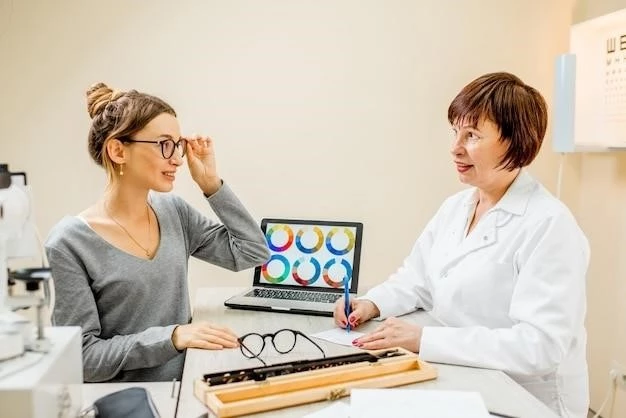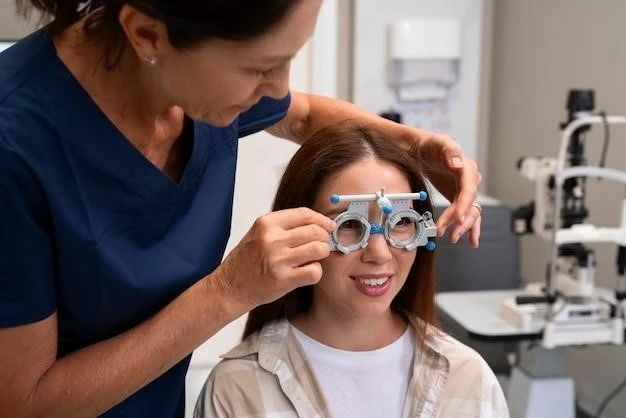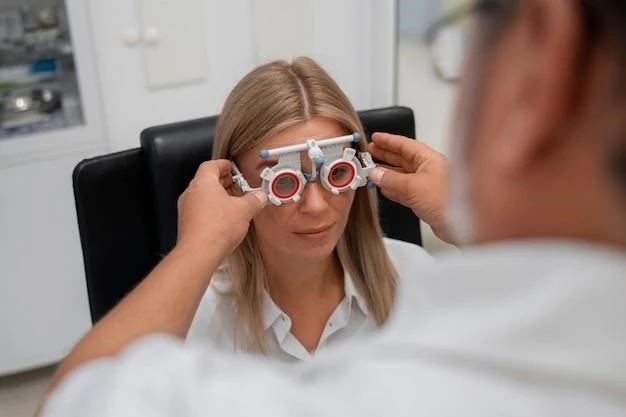Introduction
Triopia is a rare condition that affects development in the womb. Babies born with this condition may have an extra eye or one eye that is unusually large (synophthalmic eye). People with the condition also have other birth defects affecting the brain and face.
Triopia is a rare condition that affects development in the womb. It involves abnormalities such as the presence of an extra eye or an unusually large eye. People with Triopia may also exhibit other birth defects affecting the brain and face‚ including a poorly formed nose known as a proboscis. This condition falls under syndromes due to its combination of specific signs and symptoms‚ without a clear cause or treatment path like some diseases have.
Causes and Symptoms
Eye alignment problems are usually caused by the inability of the eyes to work together. Triopia‚ a rare condition‚ manifests in babies with an extra or unusually large eye. This affects brain and face development and can include a poorly formed nose known as a proboscis.
Definition of Triopia
Triopia is a rare condition that causes abnormalities in development before birth‚ leading to the presence of an extra eye or an unusually large eye. Individuals with Triopia may also experience other birth defects affecting the brain and face‚ such as a poorly formed nose called a proboscis. This condition is classified as a syndrome due to its characteristic signs and symptoms without a defined cause or treatment regimen.
Common Birth Defects Associated with Triopia
Triopia‚ a rare condition affecting development in utero‚ is known for presenting with an extra eye or a significantly enlarged eye. Additional birth defects linked to Triopia affect the brain and facial features‚ often including a poorly formed nose referred to as a proboscis. The complexity of these accompanying defects showcases the unique and challenging nature of Triopia as a congenital anomaly.
Diagnosis and Treatment
Eye alignment problems are usually caused by the inability of the eyes to work together. Triopia‚ a rare condition‚ manifests in babies with an extra or unusually large eye. This affects brain and face development and can include a poorly formed nose known as a proboscis.
Diagnosing Triopia
Diagnosing Triopia involves identifying the presence of an extra or abnormally large eye in newborns‚ along with associated brain and facial abnormalities like a proboscis. Medical professionals might conduct physical exams‚ imaging tests‚ and genetic evaluations to confirm the presence of this rare developmental condition. Given its unique features‚ Triopia requires a comprehensive diagnostic approach.
Treatment Options for Triopia
Due to the complexity of Triopia involving an extra or enlarged eye and associated birth defects affecting the brain and face‚ treatment approaches may vary. Depending on the specific manifestations‚ interventions could include surgical correction of eye anomalies‚ neurodevelopmental therapies‚ and multidisciplinary care to address the diverse needs of individuals with this rare condition. The management of Triopia typically requires a personalized and holistic approach to optimize outcomes and quality of life.
Prognosis and Complications
Individuals with Triopia face a challenging prognosis due to the rare nature of this condition involving extra or enlarged eyes and associated brain and facial defects. Complications can range from vision impairments to neurodevelopmental struggles‚ highlighting the need for specialized care and ongoing management.
Prognosis of Individuals with Triopia
Individuals with Triopia face challenging prognoses due to the rare and complex nature of this condition involving abnormalities like extra or enlarged eyes and associated brain and facial defects. Complications can impact vision‚ neurodevelopment‚ and overall quality of life‚ necessitating specialized and ongoing care to manage the condition effectively.
Potential Complications of Triopia
Complications associated with Triopia‚ a rare condition characterized by extra or enlarged eyes and additional birth defects affecting the brain and face‚ can include vision impairments‚ developmental challenges‚ and the need for ongoing specialized care. The complexity of these complications underscores the importance of tailored management strategies to address the diverse issues individuals with Triopia may face.

Research and Studies
Triopia‚ a rare condition affecting fetal development‚ presents challenges with an extra or enlarged eye and associated brain and facial defects. Ongoing research delves into understanding the underlying mechanisms and improving management strategies for individuals with this complex congenital anomaly.
Recent Findings on Triopia
In recent research‚ a case of ocular duplication with intricate craniofacial and central nervous system anomalies was discussed‚ coining the term ″triopia.″ This term highlights the complexity of the condition involving the presence of three eyes alongside diverse associated abnormalities in the affected individual’s face and brain.
Studies on Ocular Duplications and Craniofacial Anomalies
A recent study reported a case of ocular duplication accompanied by intricate craniofacial and central nervous system anomalies‚ introducing the term ″triopia.″ This condition showcases the intricate nature of abnormalities involving the presence of three eyes alongside diverse defects in both the face and brain of affected individuals.

Support and Resources
Individuals affected by Triopia can benefit from support networks catering to rare diseases‚ providing guidance‚ emotional backing‚ and resources. Genetic and Rare Diseases Information Specialists offer tailored assistance and knowledge on dealing with Triopia’s unique challenges.
Support Networks for Individuals with Rare Diseases
Support networks tailored for rare diseases offer guidance‚ emotional support‚ and valuable resources to individuals facing conditions like Triopia. These networks provide a sense of community‚ shared experiences‚ and assistance in navigating the unique challenges posed by rare diseases‚ fostering empowerment and resilience among affected individuals and their families.
Genetic and Rare Diseases Information Specialists for Triopia
For individuals affected by rare conditions like Triopia‚ access to Genetic and Rare Diseases Information Specialists can provide valuable insights and personalized guidance. These specialists offer expertise in understanding the complexities of Triopia‚ assisting individuals and families in navigating the challenges associated with this unique developmental anomaly.
